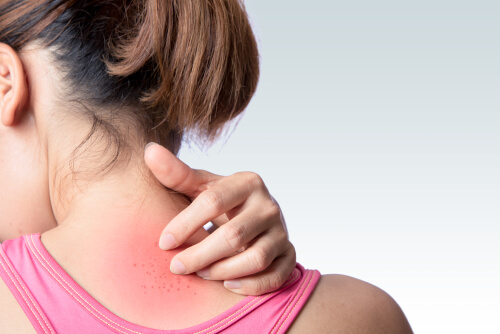
No, the Sweet Syndrome has nothing to do with eating sweets. It is not a type of diabetes or sickness that you develop after a weekend of indulging in candy and chocolate. It is called Sweet Syndrome because it was first described in the sixties by a man called Robert Douglas Sweet, and it is also known in the medical community as acute febrile neutrophilic dermatosis.
It is a skin condition that some people develop after a fever and is believed to be caused by a malfunction in our immune system. In some cases, it can be an indication of an underlying problem, such as an infection or even cancer that our body is fighting. Sweet Syndrome is not dangerous in itself, it is not contagious and sometimes goes away on its own with no need for treatment, but it can be a sign of an underlying health condition that your body is fighting.
1. Skin rashes
The most common symptom of the Sweet syndrome is a very characteristic skin rash, so much so that in some cases a doctor can diagnose Sweet syndrome by just looking at your body. The rash often starts as small bumps on your skin, that are red or dark red, even purple. They often appear on the upper body, and sometimes can be painful or tender, which makes this syndrome a quite uncomfortable condition, as well as aesthetically disrupting for some people.
These bumps are not contagious, but they can become infected if they get injured, so it is important to protect them and take care if you have Sweet syndrome. Sometimes, the syndrome also causes the appearance of blisters on your body, and you have to be especially careful with them if you don’t want them to break and get infected. These rashes do hurt but they do not itch.


